Rise of the young hawker
In the hustle and bustle of the new Bukit Panjang Hawker Centre, behind displays brimming with fresh cooked food, Mohamad Afiq Mohammed Anuar works the stove
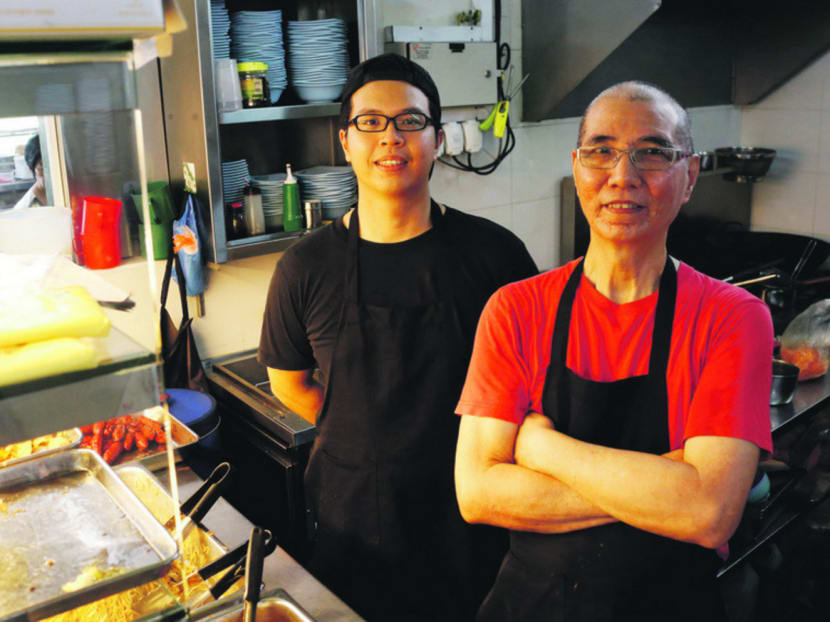
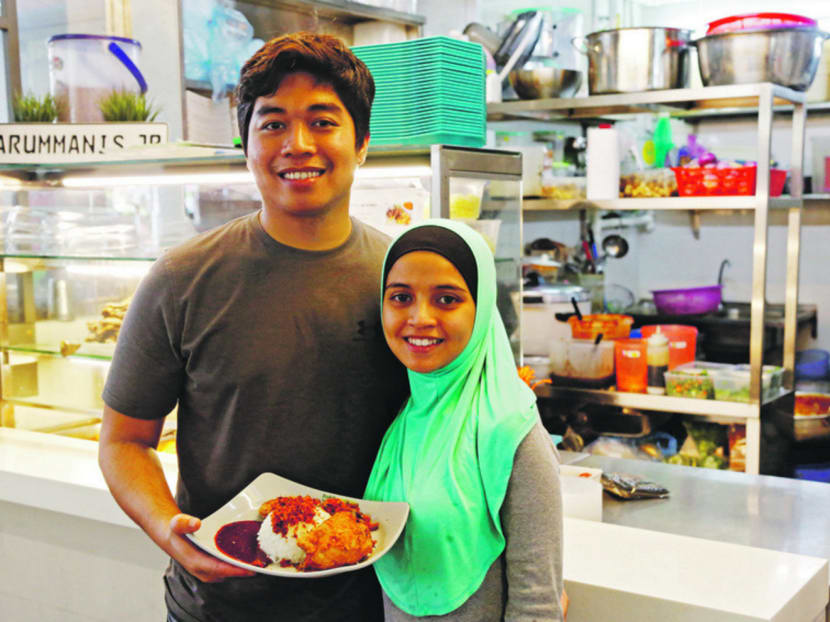
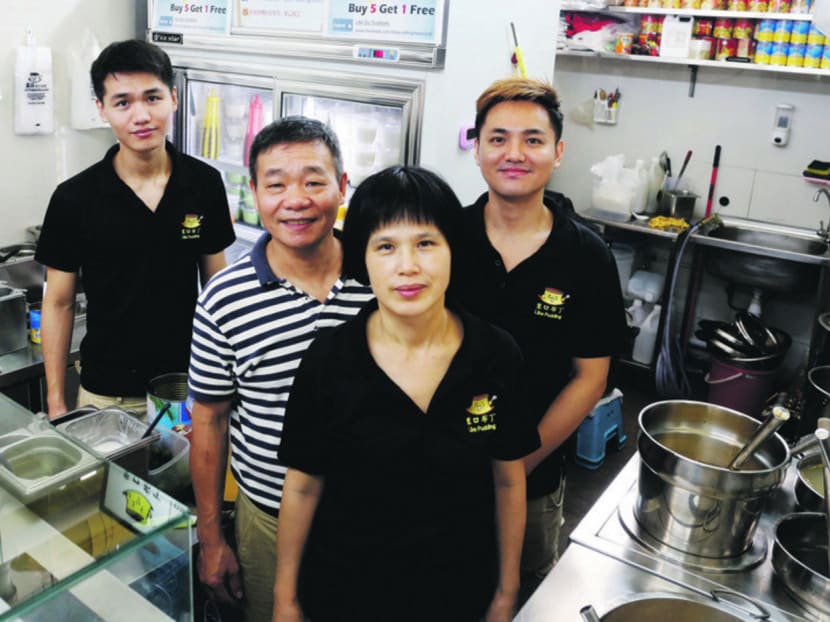
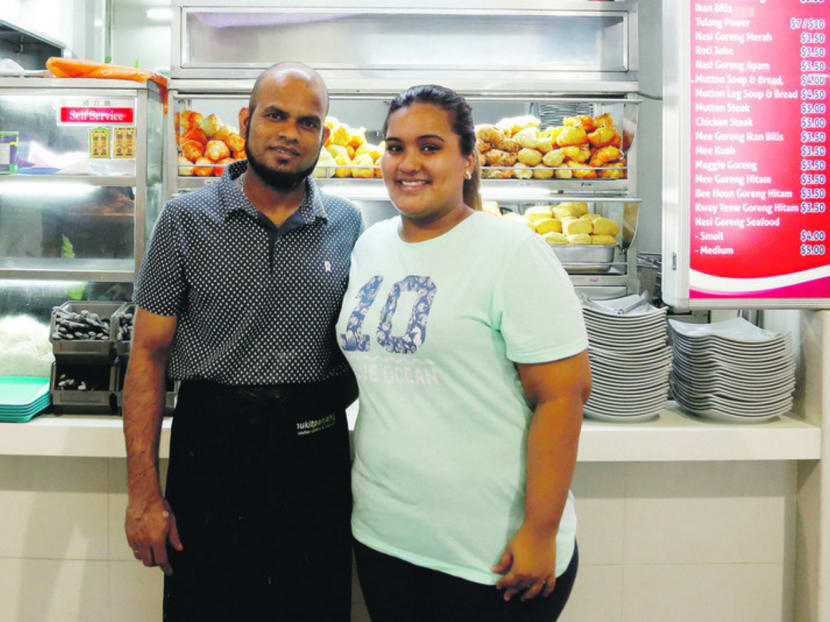
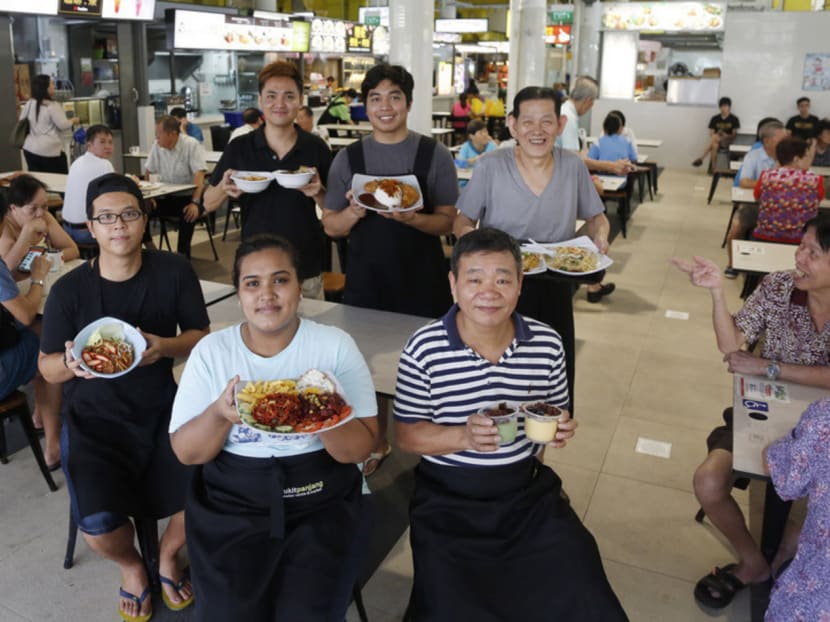
In the hustle and bustle of the new Bukit Panjang Hawker Centre, behind displays brimming with fresh cooked food, 26-year-old Mohamad Afiq Mohammed Anuar works the stove.
His local Malay cuisine stall, Harummanis Junior, was named after his parents’ stall in Teck Whye, where he had served an informal apprenticeship for five years, he explained with a broad grin. The appendage “Junior” was a reminder of his discipleship at his mother’s stove.
Describing himself as an “understudy” at his parents’ stall, he added: “I had to work for four years before my mother said I was qualified to manage her kitchen!”
Afiq Anuar’s story of apprenticeship and informal mentoring by the older generation is common among young hawkers, especially at Bukit Panjang Hawker Centre, which will officially open this Saturday.
It is the second of the 20 new hawker centres that the Government had pledged to build by 2027. The first was at Ci Yuan Community Club, which opened in August last year.
In Singapore, where few formal mentorship programmes for hawkers exist, many learn their trade organically. Many grew up in a “hawker environment” and received informal tutelage from their parents, such as 28-year-old Walter Tay. His father Tay Key Hua, 66, had been a hawker for some 30 years frying up a range of cuisine from fishball noodles to hokkien mee and orh jian (oyster omelette). They now own a carrot-cake stall at Bukit Panjang Hawker Centre.
In 27-year-old Siti Sahra Said Modamed’s case, she trailed her father from the age of six as he shopped for ingredients for their hawker stall. At 11, she was already helping to fry chicken at the stall.
Benjamin Aw, 27, also helped at his parents’ vegetarian stall while growing up. After completing his National Service, he worked at their Kallang Way stall for three years before starting his own business selling vegetarian fare.
The young hawkers’ indebtedness to the older generation can be seen in the homage that their recipes pay to their teachers. Afiq Anuar said that his older brother, who is a chef at Zengo restaurant in Dubai, liked to “experiment”, but Afiq Anuar preferred to “keep (his dishes) as close to (his mother’s) as possible” because he wanted to preserve “recipes passed down from (his) grandmother”.
Aw added that his signature dish, kway chap, is a recipe from his parents, while other dishes such as chicken rice and mee siam were learnt from other stallholders and tweaked with his parents’ help.
For Walter, his father chose to come out of retirement to open the stall with him, as he had no hawker experience being a hawker. The ability to pass on hawker skills is also very important to the older Tay — Walter said his father hopes to start an “academy”, to “host a platform for the older generation to coach the younger generation”. He also said that they had already started discussing this with the operator of Bukit Panjang Hawker Centre, NTUC Foodfare.
His father was worried that, if these skills were not passed on, there would be no authentic hawker food in the future, he added.
The older Tay said he was keen to formalise the mentoring relationship in order to “give back (his skills and knowledge) to society”. He had already taken on a student, a 30-something man from Sabah, Malaysia, who had sought him out as he was keen to become a hawker.
Still, the Tays’ partnership is more of a collaboration: Walter said his parents manage operations while he focuses on business development.
He also had a hand in branding. When they were brainstorming names for the stall, his parents had suggested more traditional names such as Toa Payoh Carrot Cake and Ah Gim Carrot Cake. He eventually settled on the name Father & Son because he wanted to “focus on family”, instead of claiming they had the best carrot cake, which he said would encourage “a lot of people (to) shoot you down”.
Another father-son combo at the hawker centre is Like Pudding. Chen Hsien Yi, 56, came out of retirement to support his three sons as they wanted to start their own hawker business. The former company manager returned to his native Taiwan (he had migrated to Singapore with his family in 1997) for eight months in 2014 to research and learn about making Taiwanese pudding from a relative, and then came back to help set up a stall with his sons.
This stall at Bukit Panjang is their second. Their first at Golden Mile Food Centre is now managed by his second son Chen Ping Hui.
The start-up period was the most difficult for the family as they had a hard time drawing customers to their first stall. On their second day, the older Chen said: “By lunch time we only had one customer, while other stalls were busy.” Scrambling for solutions, they decided to give out sample cups of pudding. The business then slowly started to grow.
When approached, NTUC Foodfare said they help the younger generation of hawkers by providing “a supportive environment for them to develop their business” through various initiatives such as the Bulk Purchase Programme and Foodpreneuers Business Grants & Schemes.
The test of fire comes for most young hawkers when they first strike out on their own. Siti Sahra said that when she started her own stall at 22, she was “crying every day” for the first three months. It was difficult juggling entrepreneurship and family life, she said, as she had a young child then.
Afiq Anuar also struggled when he opened his stall at Bukit Panjang in December last year, saying that he missed his mother’s experience and guidance. For example, in situations as innocuous as running out of certain ingredients, he did not have the experience at the time to tell whether they could substitute other ingredients to continue cooking, he shared.
Also, he said, his mother’s solid reputation, built upon 25 years of experience, made her impervious to criticism, whereas he could not deal with customers’ critiques with the same confidence.
Yet, all of the young hawkers expressed their satisfaction in “doing what (they) love”, and in meeting and overcoming challenges. Aw said it was satisfying to be able to “set up something”, and Siti Sahra spoke of the satisfaction of hard work and independence, of being able to “do it (herself)”.
Afiq Anuar said he previously started a vehicle recovery business that failed, but he had gotten back on his feet again. For him, failure is part of learning. He highly recommends the path of entrepreneurship for anyone who is considering it, as did Walter, who added that he would “advise anyone who has a tiny motivation to want to do this — to just do it”.
Siti Sahra said some people had some reservations about her when she started her first stall, but that did not deter her. Aspiring young hawkers and entrepreneurs should not “take negative comments from others”, but instead, “have confidence in yourself” and ultimately “be strong in your heart”, she affirmed.





